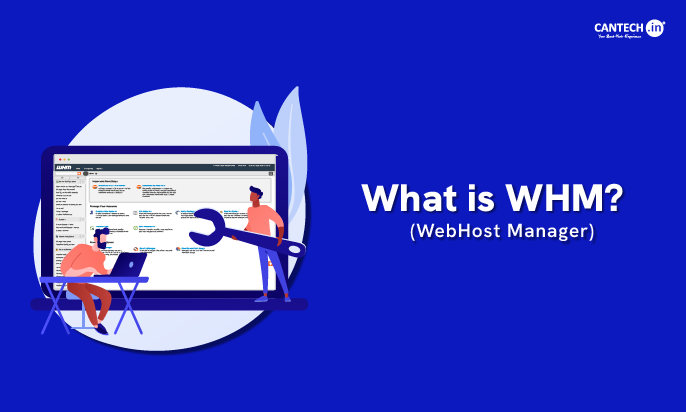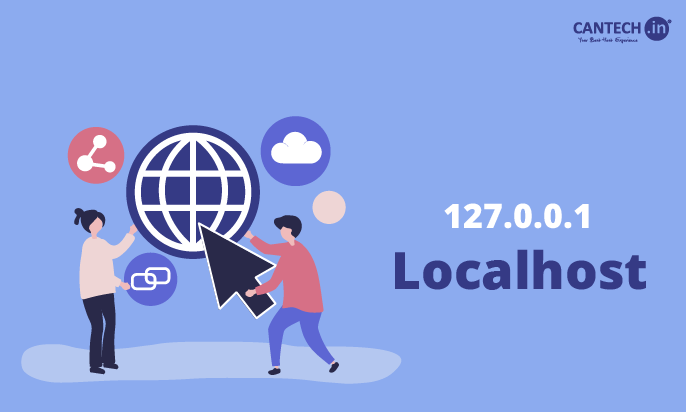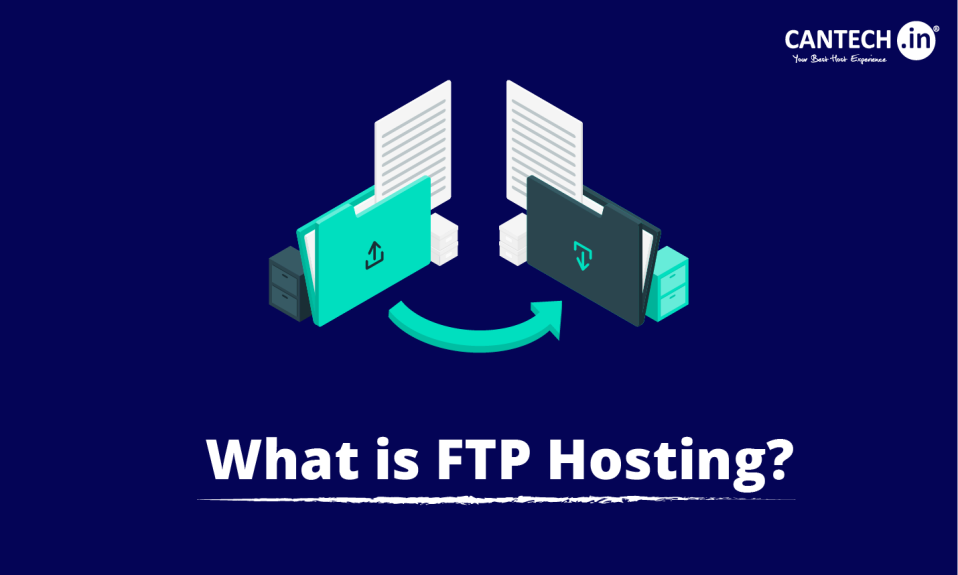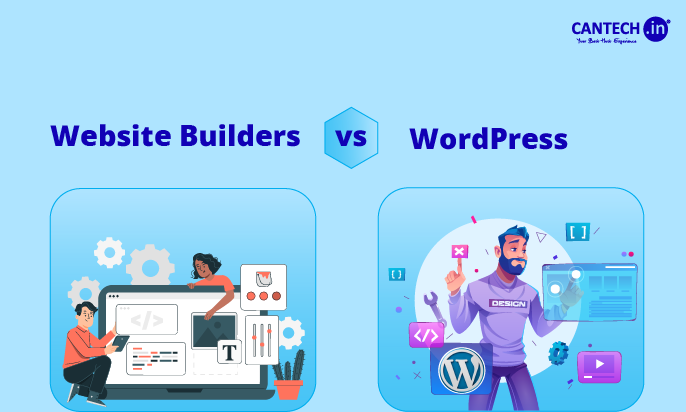A clear understanding of what each web hosting type offers is a must especially when you are looking to make a significant investment in an advanced hosting solution. It is also possible that you are unaware of the full range of hosting options available and may end up choosing a solution that may not fit your business objectives and growth plans. This blog focuses on one such comparison – managed hosting vs colocation.
Well, many businesses prefer to have complete control over their servers but do not have the required technical expertise to manage them effectively. The decision becomes challenging and more complex when the options include colocation which offers full control, and managed hosting which provides comprehensive management.
This article will further discuss both these advanced web hosting types in detail. You will understand the key differences between these high-quality network infrastructure types. Read on to compare popular hardware models – managed hosting vs colocation.
What is Colocation?
Colocation means the business provides its own hardware, such as servers, switches, and storage devices to the hosting provider which offers a secure environment for these components. They handle monitoring, maintenance, and backup tasks. This setup allows businesses to retain control over their infrastructure and also benefit from the provider’s facilities.
Read more about what is colocation in our detailed guide.
Key Server Colocation Features
The below features further answer ‘What is colocation?” –
Dedicated Space
Server colocation setup ensures that hardware is housed safely and efficiently as the businesses rent specified areas in the data center with power, cooling, and physical security.
Advanced Connectivity
Colocation facilitates smooth data transmission with robust network connectivity. It includes the facilities of power and fibre cables to enhance the same.
Robust Security Measures
Security features like military-grade surveillance, motion detectors, and biometric access controls offer strong protection.
Fire Protection Systems
Colocation features include facilities that are equipped with sophisticated fire protection systems that implement passive and active elements to safeguard hardware.
Efficient Cooling Systems
Colocation centers use advanced cooling and air conditioning systems to maintain the required humidity levels and prevent overheating.
Scalability Options
Colocation type of hosting allows flexibility in resource management. Businesses can expand or reduce their services based on their needs easily.
Compliance and Expansion
Server colocation can meet custom and advanced regulatory requirements. Also, it enables businesses to expand their data center capabilities without the costs of new construction.
Responsibilities of Clients
Colocation comes with various responsibilities such as any hardware malfunction or damage that requires your immediate attention and they need to reach the data center immediately to resolve the issue. You need a dedicated team to respond promptly to such types of issues.
Suitability for Large Enterprises
Colocation services are ideal for large enterprises, hosting, and telecommunication companies. They have the necessary financial resources and workforce to manage colocation effectively.
Colocation Advantages

Colocation offers businesses a unique solution to maintain control over their hardware. They simultaneously benefit from a professional data center’s features. Thus, it is highly suitable for businesses that want custom configurations in advanced data center resources without the huge investments in building and maintaining their own facilities. Below are other colocation advantages –
Freedom of Choice
You can get the flexibility to tailor your infrastructure to meet specific needs and preferences and select preferred hardware and software solutions.
Enhanced Flexibility
You can treat your colocated servers like your own data center. Thus, it provides more adaptability than managed hosting by allowing for various configurations and setups.
Lower Risk of Downtime
Colocation backups ensure that network outages are minimized. Its facilities often have redundant systems in place that keep services running even during system failure.
Customizable Configurations
This is one of the most significant colocation advantages. You have complete control and freedom to customize your server as per the requirements. Also, you can scale up resources and adjust settings to instantly respond to changing demands.
High Bandwidth
Colocation centers offer high bandwidth connections that enable faster access to information and improved user experience for clients and staff.
24/7 Monitoring
Colocation providers often include continuous monitoring of the infrastructure with their plans. This service helps identify potential issues early with their timely intervention and resolution.
Managed Services Option
You can choose the colocation providers offering day-to-day server management. This option can help you focus on your core business while your equipment is well-maintained by the experts.
Emergency Support
Colocation facilities may also include remote hand services for minor updates or emergencies to address urgent tasks effectively. This support enables businesses to save on hiring technical personnel.
Colocation Cons
High Initial Investment
Colocation needs a high upfront investment to purchase servers and hardware. This can prove to be a financial burden for many businesses.
Maintenance Responsibility
You need to manage your server colocation. So, you need in-house expertise to handle updates, repairs, and technical issues. This can be resolved if you choose managed colocation services.
Dependency on Colocation Provider
The colocation provider must deliver promises regarding power and cooling. If they fail to do so, it can lead to data loss and potential legal ramifications.
What are Managed Hosting Services?
Managed web hosting includes comprehensive management service offerings for the client who can buy custom server plans from a hosting provider. Our detailed guide on What is Managed Web Hosting explains how this hosting type works and the benefits it offers. This solution ensures that the provider handles essential tasks such as initial setup, operating system installation, security updates, server optimization, etc. Also, you can choose your required web hosting type with the managed services from the right hosting provider. Moreover, the outsourced management responsibilities help businesses focus on their core operations without the burden of server management.
If you’re unsure whether managed hosting is the right choice for you, check out Managed vs Unmanaged Hosting to understand the key differences.
Managed Hosting Features
The below features further answer ‘What are managed hosting services?’ –
Full Maintenance and Support
The responsibility for server maintenance, updates, monitoring, etc is on the hosting providers. This feature allows clients to benefit from 24/7 expert support without having to manage these tasks themselves.
Scalability
Managed hosting services can grow with your business demands and you can easily scale the resources as needed. Thus, you can increase storage capacity, add more computing power or any other custom needs can be easily met.
Best Security
Hosting providers implement advanced security measures such as regular security patches, firewalls, monitoring, DDoS protection, and more for potential threats and to protect client data.
Backup and Recovery Solutions
Automated backup systems are normally part of managed hosting services to ensure data is safe and easily recoverable in case of an incident.
24/7 Monitoring
Managed hosting features include 24/7 monitoring of servers and instant support from the dedicated expert team. This proactive approach is in place so that the potential issues can be identified early and addressed before they damage business operations.
Customizable Solutions
You get the flexibility to integrate specific applications and services that meet business goals. Thus, it is easy to tailor your hosting environments according to your requirements.
Types of Managed Services
What are managed hosting services? To understand this better, it is essential to know the types of managed server hosting. The primary types are discussed below:
Managed Dedicated Servers
The hosting provider allots a dedicated physical server for one user in this type of managed service. The managed dedicated server provider handles complete management, monitoring, maintenance, updates, backups, security, support and more for the same.
Managed Virtual Private Servers (VPS)
When multiple users share physical server resources but have a dedicated virtual server within the same for a single user. This option is cost-effective and offers flexibility for scaling. The managed VPS hosting plans also include comprehensive managed services.
If you’re looking for a fully managed VPS solution, What is Managed VPS? explains how it works and its benefits.
Managed Cloud Hosting
Cloud technology is used to offer virtual server resources to the user through managed cloud hosting. You benefit from the managed services & infrastructure with the cloud’s reliability & scalable resources.
Explore What is Managed Cloud Hosting? to understand its benefits over traditional hosting solutions.
Managed WordPress Hosting
This managed web hosting type is tailored for WordPress websites. It provides an optimized server and specialized support for WordPress users. To learn more about its benefits and features, check out What is Managed WordPress?
Managed Email Services
These services offer secure and reliable email hosting with other managed hosting features in addition to spam protection, archiving, and collaboration tools.
Managed Hosting Advantages
Managed hosting offers a lot of benefits that help businesses make their operations super smooth. It reduces their workload to a great extent. Further, this solution is particularly valuable for companies without an extensive IT department. Here are some key managed hosting advantages:
Saves on IT Costs
You can avoid the need for in-house IT staff with comprehensive server management offers by the hosting providers. They handle server administration, maintenance, support, etc. so the internal team can focus on other essential tasks.
Cost-Effectiveness
Like in colocation, you need not buy servers and incur the high costs of purchasing and maintaining hardware. Managed hosting advantages include a comprehensive approach that allows businesses to allocate their budget more efficiently. They can use their funds for other important projects.
Expert 24/7 Support
A team of dedicated specialists handles managed hosting services 24/7. They ensure that the server is configured according to the client’s specific needs. Thus, this expertise can ensure better performance and fewer technical issues.
Proactive Monitoring
Continuous server monitoring detects potential issues before they escalate. This proactive approach gives a high uptime guarantee and enhances overall server reliability.
Security Management
Managed hosting advantages also include essential security measures to protect clients’ data and ensure compliance with industry standards. It provides regular backups, security patching, vulnerability assessments, etc.
Scalability
The managed solutions are flexible and can easily meet your changing business needs. You can scale the resources up or down as per the demand without the hassle of physical infrastructure adjustments.
Easy Maintenance
Application maintenance and upgrades are the responsibility of the managed hosting providers who ensure that all systems run optimally. This management avoids complexities related to software versioning and operational management.
Focus on Core Business
Outsourcing server management allows businesses to concentrate on their primary objectives instead of technical details.
Managed Hosting Cons
Managed hosting plans come with a higher monthly fee compared to colocation as they provide infrastructure, technology, and comprehensive management services. Also, you need to rely on the provider for support and maintenance with less control over server configurations.
Managed Hosting vs Colocation – The Overall Comparison
Let us now summarise and get a comprehensive comparison of managed hosting vs colocation in the below table –
| Feature | Managed Hosting | Colocation |
| Definition | Managed hosting is a service that includes the server infrastructure, hardware, and complete management, monitoring, and support for the same from the hosting provider. | Colocation offers you a space for your servers in a data center but you own the hardware and have the responsibility to maintain them. |
| Cost | Managed hosting upfront cost is lesser as you need not buy hardware. | Colocation requires a higher initial investment for purchasing servers and hardware. |
| Support | Managed hosting includes expert 24/7 support with setup, maintenance, monitoring, and other server management services. | Colocation offers minimal support. You need to handle server colocation issues on your own. |
| Technical Expertise Needed | These services do not require any technical knowledge. The provider manages everything for you. | You need expert technical skills or a team to manage hardware and troubleshoot issues. |
| Control | You have limited control over hardware and software configurations. | Have full control over your servers and can customize them to your needs. |
| Scalability | It is easy to scale and upgrade as required. | You must purchase additional hardware to scale your operations. |
| Downtime Protection | Providers offer strong backup systems for maximum uptime. | Your own backup systems must be in place to protect against outages. |
| Location of Servers | Servers are managed in off-site data centers by the hosting provider. | Servers are located at the colocation facility but the businesses own them. |
| Data Security | Managed hosting includes built-in security measures from the provider. | Colocation requires you to implement your own security protocols. |
| Hardware Maintenance | The provider handles all hardware maintenance and replacements. | Clients are responsible for maintaining and replacing their own hardware. |
Managed Hosting vs Colocation – Which one to choose?
The choice between managed hosting and colocation depends on various factors. They are discussed as below –
Managed Hosting
Businesses can enjoy the benefits of professional server management and also keep the costs manageable at the same time. Moreover, managed service offers comprehensive IT support that makes it ideal for those who do not have the technical knowledge or time to manage their servers.
Colocation Services
This option allows businesses to invest in their own hardware. Thus, full control over the servers is possible with the server colocation. Also, you benefit from the data center’s infrastructure and connectivity.
Flexibility
A hybrid approach is also possible in which the businesses can avail managed hosting with colocation. Hence, they can use the strengths of each service to optimize performance and manage costs. Moreover, data centers often provide on-site professionals who can assist with maintenance and troubleshooting.
Customization
Colocation advantages include full control over hardware and software configurations. So, you can tailor the setups to meet custom needs and also ensure that the infrastructure remains secure and reliable.
Long-term Contracts
Businesses can avail stability and predictability with colocation as it mostly involves signing annual or multi-year agreements. This structure helps businesses avoid connectivity fluctuations and ensure consistent service.
Cantech’s Colocation and Managed Hosting
Cantech provides both the specialized services with the required infrastructure and expertise available. They are backed by 15+ years of hosting and server experience. Let us go through some of the benefits of choosing Cantech for colocation and managed hosting services –
Why Choose Cantech for Colocation?
Cantech offers expert colocation service with a global data center strategically located that can provide optimal performance and connectivity.
Our Server Colocation Features
- 24/7 accessibility allows clients to manage their servers anytime.
- We ensure smooth connectivity through carrier-neutral data centers that promote low-latency connections.
- Flexible space options cater to various business needs.
- We include advanced protocols like 24/7 surveillance and biometric access.
- Advanced cooling systems maintain ideal equipment conditions.
- Dual power feeds ensure a reliable power supply.
- Cost efficiency reduces capital expenditures for clients.
- Cantech ensures compliance with stringent regulatory standards.
- Our commitment to environmental responsibility is covered through the implementation of energy-efficient technologies.
Related: Managed Vs Unmanaged Hosting
Why Choose Cantech for Managed Hosting?
Cantech’s expert team provides tailored server management services and support for various infrastructures. The services include everything from initial setup, ongoing maintenance, robust security, smooth integration, proactive issue resolution, etc. You can choose from flexible and cost-effective management plans as per your unique requirements.
Managed Hosting Features
- Cantech guarantees 24/7 monitoring and support for uninterrupted performance.
- Scalable support plans adjust as business needs change.
- Customized plans ensure clients only pay for what they need.
- High uptime guarantees
- Comprehensive backup solutions protect valuable data.
- Seamless migration support simplifies transitions to our services.
- Clients receive dedicated account management for personalized support.
Managed Colocation Hosting
Cantech offers managed colocation plans to enable the hosting of your servers in our top-tier data centers with end-to-end management and maintenance services.
Conclusion
Managed hosting vs colocation is an easy-to-understand comparison. Managed hosting offers a comprehensive approach with dedicated support. Whereas, colocation server hosting provides greater control and security for businesses that can invest in their own hardware. You can choose one as per your budget and operational goals. The right provider selection in accordance will further enhance the effectiveness of your chosen solution. Choose Cantech for your comprehensive needs.
FAQs
What is colocation?
When you rent the space in the data center from the colocation hosting provider for the hardware that you own, then it is called the colocation. Thus, you have complete control over the hardware but the management responsibility lies on you unless you also choose their management services for the same.
How do data centers and colocation differ?
A data center is a facility built to store and manage servers and related hardware. It offers cooling, power supply, security, and other services.
On the other hand, colocation allows businesses to place their own servers within a data center. The owners of these servers maintain full control over their hardware. They also handle all configuration and maintenance.
What is cloud colocation?
Cloud colocation is a setup that includes the benefits of traditional colocation with cloud computing. Users can access their data from any device with an Internet connection and do not need constant on-site monitoring.
Businesses get both the security of physical servers and the flexibility of cloud resources when they integrate colocation with a public cloud platform. Thus, they can ensure efficient data management without compromising on security or performance.







